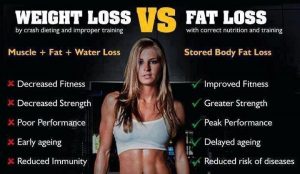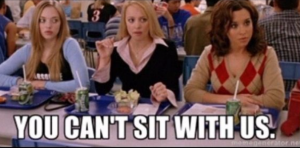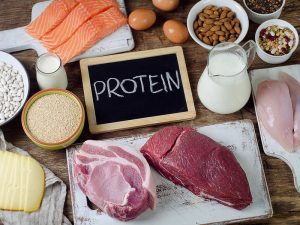Whether it be the latest celebrity diet, ground-breaking ‘scientific research’ or the ‘secrets’ of cover models (available for a small subscription fee), we are often more confused than informed on the topic of losing fat!
Whilst I am very aware that I am adding to such debate with this very post, you will see – by reading on – that this is a gimmick, quick-fix and subscription-free zone.
So buckle in, open your mind and enjoy.
1) You are eating too many calories
Really? Wow!….The Science medal goes to me for this one. Whilst this seems obvious, so many of us get it wrong and/or manipulate this basic law into all kinds of variations and myths…
Myth Busting 101:
“Eating 8 small meals a day increases your metabolism”
“Eating before bedtime increases fat storage”
“Eating carbohydrates causes fat storage”
I could go on and on with the myths that are still preached amongst the masses. Everyone has an opinion on what strategies to use and what habits to ditch in order to control your waistline. I’m here to tell you that, THE number one most important factor for your weight is energy balance = calories in vs. calories out. You can chose to employ all of the aforementioned myths; drink fruit smoothies 6x a day, eat a Steak at 10:30pm or even eat white pasta 😆 and still lose weight…Ultimately, total calorie intake is KING.
Okay, so what can I do?
I was hoping you would ask!
Since energy output is a lottery, a great place to start is knowing (roughly) the amount of calories you consume on a daily basis. The “MyFitnessPal” app is a personal favourite of mine, it’s easy to use and has a huge catalogue of foods you can swipe into your own personal food diary. People often massively underestimate the calories they are consuming and hence the pounds accumulate over time, this method gives you back control and at times offers a sobering reflection of the calories you actually have consumed (pun intended). Bottom line, if you’re serious about fat loss you must have a basic understanding of your calorie intake.
2) Weight Loss vs. Fat Loss: Know the difference
“Lose 10 pounds in 1 week with this amazing diet”
“Drink our shakes and you will get the body you want”
We’ve all seen, heard or bought into something that looks very similar to these marketing ploys. Now whilst they CAN yield ‘weight loss’, many of us are too preoccupied by a number on a scale vs. what might be best for our health, performance and aesthetics (let’s be honest we all want to look good naked).
Your body has two forms of mass which make up our scale weight. Lean Body Mass (Muscle, Bones, Water) and Fat Mass (adipose tissue). Often, fat gets all the media attention, and rightly so, with the ever growing obesity rates across the globe. However, seldom is muscle ever mentioned in the equation. Low muscle mass and strength has been extensively linked to mortality and chronic disease. Yet, when we seek to simply lose numbers on a scale (and quickly) we are sacrificing our strength, immunity, energy levels and our lean body mass. This is ‘weight loss’. Yes, you will lose some fat but you’ll probably look and feel like someone being dragged around Primark by their better half – tired, frustrated and hungry. 
Moreover, after a ‘successful’ weight loss effort your body will be so depleted, dehydrated and weak that you will likely end up filled with regret after a few bad decisions (like some of my Sunday mornings) as the local takeaway boasts a very successful evening. Oddly enough this cycle is repeated time and again and we actually end up worse off, as we regain more weight (fat) than when we started. Furthermore, key evidence is now showing that we may be causing permanent metabolic damage with these ‘quick-fixes’. In scientific circles, this is known as metabolic adaptation and can make a future fat loss effort even harder! We all need to take the advice of Mr. Barlow and “have a little patience”!
3) You want results and you want results now!
Instagram, Amazon Prime, Six-Minute abs…We live in a world that now craves instant gratification for a photo we have just posted or an item we have ordered (which reminds me please like and share this article 😜). Unfortunately, the fitness industry is the latest casualty of this new world order. Enter the shrewd fitness marketers, profiting from our impatience and packaging “instant-results” into a diet product, supplement or success story that has generated over 110 billion USD as a result. Sorry to ruin Christmas guys, but there is no shortcut and there is no magic diet or pill. What is needed in every fat loss effort is time, consistency and hard work.
 The best results come from slow and sustained losses over a longer period of time. Practising the basics of the previous two points, sprinkled in with some resistance training, cardiovascular exercise and ‘optimal’ macro nutrient prescriptions, voila we have a fat burning machine! In addition, you’ll also develop some self-control, mental fortitude and work ethic during the process. Who knew fat loss would also make you a better and more rationale human being?
The best results come from slow and sustained losses over a longer period of time. Practising the basics of the previous two points, sprinkled in with some resistance training, cardiovascular exercise and ‘optimal’ macro nutrient prescriptions, voila we have a fat burning machine! In addition, you’ll also develop some self-control, mental fortitude and work ethic during the process. Who knew fat loss would also make you a better and more rationale human being?
A takeaway point here (not the one you’re think of) is to lose no more than 1% of your total body weight per week. This will ensure that the losses incurred are predominantly from fat mass as you retain muscle mass (see point 5) and you hold onto your metabolic and mental health in the process. “Everyone’s a winner baby”.
4) You are part of a gang!
CrossFit or Bodybuilding? Keto or Carb? Fast or Graze? Vegan or Carnivore? Somehow if we want to get into fitness nowadays we now have to join a gang. But rather than discuss the idiosyncrasies of these belief systems, let’s look at why this might impact fat loss…

Disclaimer, If you follow or are a part of any fitness movement I am not passing judgement or analysis (not in this post anyway😉). If this gets you active, keeps you healthy and you enjoy it – then great, have at it!
Meanwhile, here’s a task for you: Don’t think of a pink elephant!
You did didn’t you? Because I forbid it (Eve and Freud would have a field day on this one). But, biblical stories and Austrian psychologists aside, human nature dictates that if we restrict something we want it more. In the case of restrictive diets the same applies. If I tell you that you can’t ever eat a certain food or macro nutrient ever again, our desire for it increases. As I said earlier, you can eat your favourite foods (of course without reckless abandon) and still lose fat!
Adherence has been shown as THE most important psychological factor of successful diets and fat loss efforts. If you enjoy the foods you are eating, you’re not being too restrictive, keeping in a calorie deficit and hitting your “macro’s bro” then you – my friend – are a Jedi Knight of fat loss. Your ultimate aim should be to shift your ‘diet’ into a lifestyle which no longer, makes you feel like you are ‘on a diet’. The word ‘Diet’ has been lost in translation over the years, the word can even make spine’s tremble with fear. This is food not Miss Trunchbull, it should not be scary.
5) You aren’t hitting your Macro’s (Bro)
So let’s assume you’re in the perfect energy deficit for losing 1% of your body weight per week, you are committed to the sustained ‘lifestyle diet’ and you’re including foods that you enjoy to keep adherence.
What next?
This is where it gets a little bit technical. If we are in a calorie deficit we will lose weight, but our aim should be to maintain muscle mass and lose fat mass. To do this Protein is KING. Long story short but after a decade of research, protein intake between 2g-3g/kg of body weight can maintain or even build new muscle mass when in a caloric deficit.
So let’s do an example with a random name that has no connection with protein…
Arnold is 70kg, meaning he needs a minimum of 140g of protein/day = 2g/kg body weight.
Now let’s say Arnold has found a sweet spot of 2,500 kcal/day and is losing a near perfect 0.5 pounds of body weight per week (which will change/decrease as the weeks progress).

These two factors will ensure he is losing predominantly fat mass and keeping hold of his hard earned muscle.
If we then combine these figures with research that says we maximise muscle protein synthesis (building of new muscle) every 3-4 hours. Then this would be 4 meals every 3-4 hours containing 35g/Protein/meal.
In the context of total calories (which is king remember) 1g Protein = 4 calories, which means Arnold’s protein intake = 560 calories/day
Now Arnold has 1,940 calories remaining to spend on his fat and carbohydrate intake. (How we spend these calories I will discuss in a future post).
I know – I haven’t even touched on protein sources, fibre intake, quality of food and so much more…
But for now, here are your take away ‘fat loss’ points…
Take Away
- Total Calories are KING
- Slow and steady wins the race
- Adherence is KEY
- Protein is the first name on the team sheet for Lean Body Mass preservation.
- Like and share my post, I need a like to feel fulfilled (this one is a joke, but seriously like it)



Thank you Sam. This information will help my costant battle with the bulge.
Well written and insightful Sam!